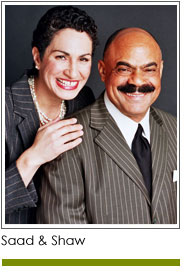 This week we heard two expressions we are compelled to share with you, our readers. They are “The Fooling Yourself Theory” and “Don’t mistake my kindness for weakness.” Both can be applied to fundraising throughout the year, and especially in the last quarter. They were shared by women from different parts of the country both of whom are very experienced with fundraising, board service, and nonprofit management. One is a nonprofit executive, the other heads a private business. Here are the details.
This week we heard two expressions we are compelled to share with you, our readers. They are “The Fooling Yourself Theory” and “Don’t mistake my kindness for weakness.” Both can be applied to fundraising throughout the year, and especially in the last quarter. They were shared by women from different parts of the country both of whom are very experienced with fundraising, board service, and nonprofit management. One is a nonprofit executive, the other heads a private business. Here are the details.
The Fooling Yourself Theory. When we heard this phrase we had to stop and write it down right away. Here’s what it means. You are an executive (or board member) and you observe that certain structures, systems or people do not support the organization and its goals. You make the observation and then you ignore your observation. Or you hope you’re wrong. Or you hope it will resolve itself on its own. We have seen this in play so many times. People in leadership know what is wrong, see it clear as day, and yet take no action.
Don’t mistake my kindness for weakness. This error can be made by young and old alike. The young may confuse kindness with weakness because they don’t have a history of working within healthy organizations. They may assume that creating a climate of trust and letting people be responsible for outcomes is a sign of weakness. That the executive or board chair won’t notice if work isn’t produced. Older people may have been trained to respond to constant follow up, criticism and externally imposed deadlines. They may mistake a leader’s delegation of responsibility and respect for others’ expertise and autonomy as weakness.
The fourth quarter is a time many nonprofits focus on revenue, and The Fooling Yourself Theory can get in the way of successful fundraising. If last year’s fundraising strategy did not yield the required results, thinking it will work this year may be an example of the “theory” in action. If board members did not solicit those they agreed to solicit last year, you may want a different strategy – or different volunteers – this year.
Employees and board members who show up in body but not in mind and spirit, and those who quietly or boldly don’t fulfill their responsibilities may be surprised when they are asked to resign. It shouldn’t be a surprise: kindness is not weakness. Kind leaders work with their employees and board members and understand the ups and downs of life and the many commitments we all must fulfill. But leaders – mean and kind – know that responsibilities need to be fulfilled. Those who don’t practice the “theory” take action: they are not weak, they are kind and decisive.
Contemplate these expressions and let them inform your leadership and your ability to follow.
Copyright 2014 – Mel and Pearl Shaw
Mel and Pearl Shaw position nonprofits, colleges and universities for fundraising success. For help with your campaign visit www.saadandshaw.com or call (901) 522-8727.












